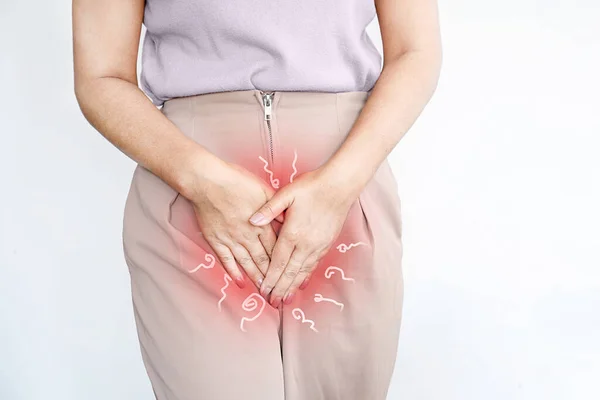Vaginal odor is a topic surrounded by misinformation and unnecessary concern. According to Brynna Connor, MD, Healthcare Ambassador at NorthWestPharmacy.com, a natural vaginal scent is a normal part of female health, signaling the balance and activity of beneficial bacteria. Erica Montes, MD, board-certified OB/GYN and pH-D Feminine Health Advisor, also emphasizes that a mild, musky smell is typical, reflecting a healthy vaginal environment. This article clarifies what causes vaginal odor, how to distinguish healthy from problematic smells, and how to manage it comfortably with simple home remedies.

What Causes Vaginal Odor? – Insights from Experts
Vaginal odor results primarily from the balance of microorganisms that live there, including lactobacilli, which maintain acidity and prevent infections. Dr. Connor explains the interplay between vaginal secretions, sweat, natural bacteria, and pH levels creates the characteristic scent that varies throughout the menstrual cycle. Hormonal fluctuations, hygiene practices, diet, and clothing also influence this odor. For instance, increased sweating during exercise or wearing tight, non-breathable fabrics can intensify smells without indicating illness.
Dr. Montes adds that swallowing or altering this scent excessively with products might disrupt the natural flora, leading to infections like bacterial vaginosis or yeast overgrowth, which produce stronger, unpleasant odors. Understanding this biological ecosystem helps demystify why normal odor varies and when it warrants attention.
What Is a Normal Vaginal Smell? Recognizing Healthy Signals
A typical vaginal smell is often described as slightly tangy, similar to yeast or sourdough bread, but it never ought to be overpowering or foul. This odor reflects a balanced vaginal pH, typically between 3.8 and 4.5, maintained by lactobacilli producing lactic acid. Minor changes in scent after exercise, during ovulation, or under stress are common and harmless.
If the smell suddenly becomes sharp, fishy, or malodorous, especially when accompanied by itching, discharge, or irritation, this could signal infections or imbalances requiring medical evaluation. Dr. Montes stresses paying attention to these warning signs but reassures that mild and consistent vaginal odor is not a cause for embarrassment or aggressive treatment.
How to Address Vaginal Odor at Home – Safe and Effective Approaches
Many women experience anxiety about vaginal odor and turn to store-bought deodorizers or scented wipes, which Dr. Connor advises against because these products can disrupt the delicate vaginal microbiome and cause irritation.

Consider these expert-recommended steps instead:
- Ditch These ‘Deodorizers’: Avoid douches, scented sprays, or powders marketed for vaginal freshness. They may mask odor temporarily but increase infection risk.
- Opt for Breathable Clothing: Wear cotton underwear and loose-fitting clothes to reduce moisture buildup, which can exacerbate odor.
- Consider Cutting Back on Sugar: High sugar intake can encourage yeast overgrowth, altering normal vaginal scent.
Maintaining a healthy diet, staying hydrated, and practicing gentle hygiene with mild, unscented soap on the external genital area also support natural odor balance.
How Do You Get Rid of Smelly Down? Practical Tips to Restore Freshness
To reduce unwanted vaginal odor without harming vaginal health, focus on lifestyle adjustments suggested by gynecologists and healthcare professionals:
- Change underwear daily and after workouts.
- Rinse the vulva with warm water; avoid cleansing inside the vagina, which is self-cleaning.
- Manage stress as it can influence hormonal balance and microbial flora.
- Use probiotics, specifically strains like Lactobacillus acidophilus, to support vaginal microbiome health, either through supplements or fermented foods like yogurt.
These methods promote freshness without disrupting the natural ecosystem vital to vaginal health.
How to Clean Your Vagina Inside with Home Remedies?
It is important to emphasize that the vagina is self-cleaning and does not require internal washing. According to Dr. Montes, using any internal wash or douching is discouraged because it disturbs the microbial balance, potentially encouraging infections.
Safe home care focuses on external cleanliness and promoting internal health through:
- Consuming balanced nutrition and fluids.
- Avoiding irritants such as harsh soaps or scented products.
- Wearing breathable fabrics.
- Consulting healthcare providers if symptoms like unusual odor or discharge persist.
For those experiencing persistent unpleasant odor, prompt medical advice helps diagnose underlying conditions such as bacterial vaginosis or yeast infections, which require targeted treatment.
Also Read | Easy Natural Remedies for Constipation Every 50+ Adult Should Try










